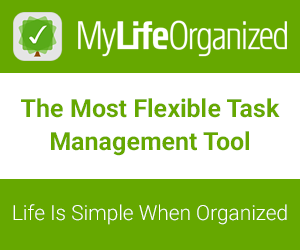As the short-term rental market continues its meteoric rise, the need for efficient management systems is more pressing than ever. These platforms not only streamline operations but also enhance profitability and guest satisfaction. But with a plethora of options in the market, how does one choose the best fit?
Here’s a comprehensive guide to inform that critical decision. We will delve into the significance of rental management software and important considerations while choosing it.
The Significance of Advanced Rental Management Software
In today’s rapidly evolving digital landscape, short-term rental businesses are increasingly recognizing the significance of having robust and adaptable management software. The right platform acts as the backbone of operations, streamlining administrative tasks, optimising marketing efforts, and most importantly, enhancing guest experiences. However, the plethora of options available in the market can sometimes be overwhelming, making the decision-making process daunting.
Comprehensive Functionality
In an industry where the smallest detail can make the most significant difference, a holistic approach to management is paramount. A top-tier rental management software should be versatile, catering to all operational needs. From streamlining reservations to managing property upkeep schedules and offering detailed analytics on guest preferences, a comprehensive platform is more than just a digital tool—it’s a strategic partner.
User-Friendly Interface
In the digital age, adaptability is key. A system that is intricate and challenging to navigate can lead to operational inefficiencies and costly mistakes. A well-designed, user-centric interface, bolstered with interactive guides and tutorials, ensures that every team member, regardless of their tech proficiency, can leverage the software to its fullest potential.
Integration Capabilities
In a connected world, isolation is a drawback. The ideal software shouldn’t just stand alone but should seamlessly weave into your existing digital ecosystem. This means effortless syncing with other platforms, automated data transfers, and reducing the manual entry workload. It’s all about creating a cohesive digital tapestry that drives business forward.
Dynamic Pricing Features
The rental market, much like the stock market, sees its fair share of ups and downs. With events, seasons, and even global happenings influencing demand, a static pricing model is obsolete. Software equipped with AI-driven dynamic pricing algorithms can analyse market trends, predict demand surges, and adjust prices accordingly, ensuring every listing is competitively priced.
Robust Security Measures
In the realm of online business, trust is currency. Every breach or data compromise can not only result in financial losses but erode brand credibility. This makes it imperative for the chosen software to be fortified with advanced encryption, multi-factor authentication, and regular vulnerability assessments. Only in a secure digital environment can businesses truly flourish.
Reliable Customer Support
Software, no matter how advanced, isn’t infallible. When glitches arise, the difference between prolonged operational disruption and a quick resolution is the efficacy of customer support. Platforms backed by dedicated support teams, comprehensive knowledge bases, and regular training webinars ensure that businesses never face downtime.
Mobile Accessibility
The world isn’t stationary, and neither is business. Modern property managers need to be agile, addressing concerns, making decisions, or checking on property statuses on the move. This necessitates a software solution that’s either mobile-native or has a robust mobile-responsive interface, turning every smartphone or tablet into a mobile command centre.
Scalability
The aspirations of property managers aren’t static. As businesses grow, so do their operational complexities. The ideal software should evolve in tandem, accommodating new properties, higher guest volumes, and more complex analytics without missing a beat. It’s not just about serving the needs of today but being ready for the ambitions of tomorrow.
Feedback and Review Management
In a world where word-of-mouth has gone digital, managing online reputations is paramount. Beyond just collecting reviews, the software should offer sentiment analysis, alerting managers to negative feedback trends, and providing tools to engage with guests, post-stay. This turns feedback into actionable insights, fostering continuous improvement.
Transparent Pricing Model
Financial surprises in business are rarely pleasant. An effective rental management platform should have a clear, transparent pricing model. Whether it’s a one-time purchase, monthly subscriptions, or pay-per-booking models, understanding the complete financial implication ensures budgeting accuracy and aids in long-term financial planning.
Conclusion: A Strategic Choice for Long-Term Success
In the intricate tapestry of short-term rental management, each thread—from guest interactions to pricing strategies—can significantly influence the outcome. By employing advanced software solutions, property managers are not just reacting to the industry’s demands but proactively shaping their business trajectories. The incorporation of state-of-the-art features and tools doesn’t merely simplify the day-to-day operations; it revolutionises them, setting the foundation for future growth. As the rental landscape becomes more dynamic and competitive, leaning into technological advancements isn’t just a luxury; it’s an imperative. By investing in the right software today, property managers position themselves at the forefront of the industry, ready to harness the myriad opportunities that the future holds.
Image Credits: Tierra Mallorca




Like this article? Share with your friends!